The Wild West was not just about cowboys, horses, and dusty trails but also about the meals that fueled the adventurers and settlers as they journeyed across the vast landscapes. From hearty stews to campfire-baked breads, these meals were essential for survival and comfort. This collection of 18 iconic cowboy trail meals showcases not only the ingenuity of trail cooks but also highlights one special recipe that transformed the culinary experience of the Wild West.
Chuckwagon Stew
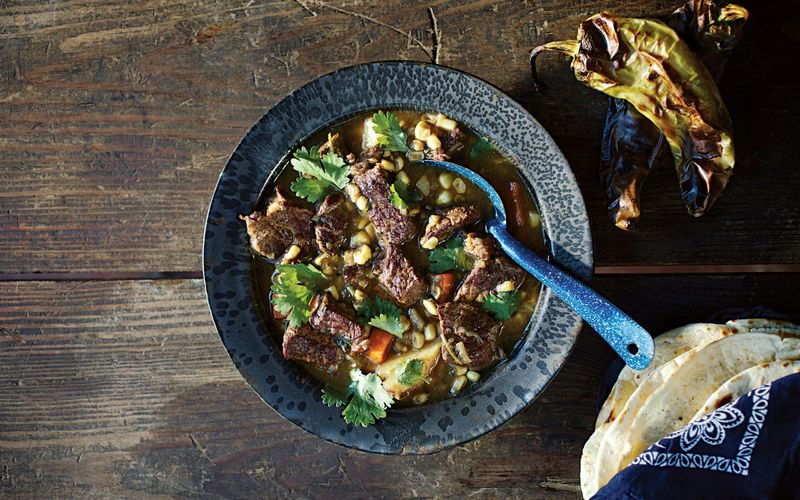
A staple on the trail, chuckwagon stew combined whatever meats and vegetables were available. This hearty dish provided warmth and sustenance after a long day’s ride. Imagine the scene: cowboys gathered around the fire, sharing tales and laughter as the stew simmered. Each spoonful was a mosaic of flavors, a testament to the trail cook’s resourcefulness. A fun fact: the chuckwagon itself was a mobile kitchen, invented by Charles Goodnight in 1866, designed to feed hungry hands on cattle drives. Such ingenuity was vital for survival.
Sourdough Biscuits
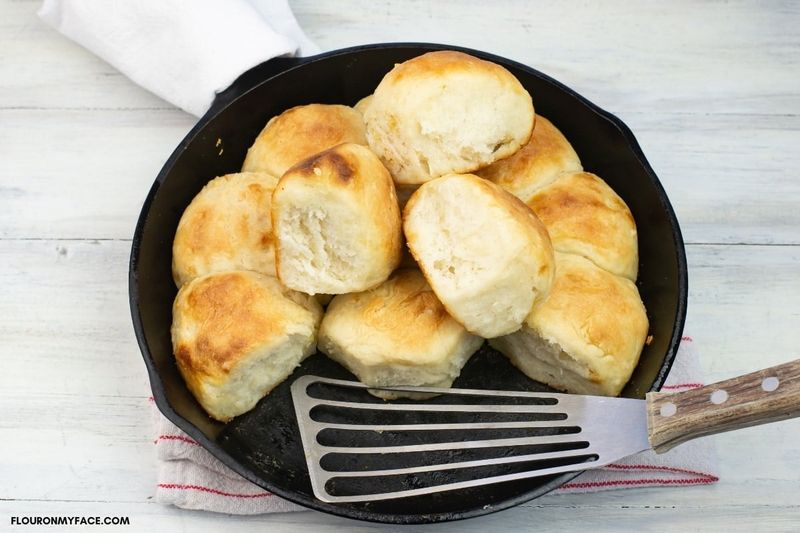
Sourdough biscuits were a cowboy’s morning delight. Made from a sourdough starter that was passed down through generations, these biscuits had a tangy flavor and delightful crust. The trail cook would rise early to prepare them, ensuring the camp woke to the comforting aroma of baking bread. Sourdough’s origin dates back to ancient Egypt, but its popularity soared in the Wild West. Cowboys cherished these biscuits, often pairing them with gravy or simply enjoying them warm. The unique starter was a treasured possession, a culinary heirloom.
Beans and Salt Pork
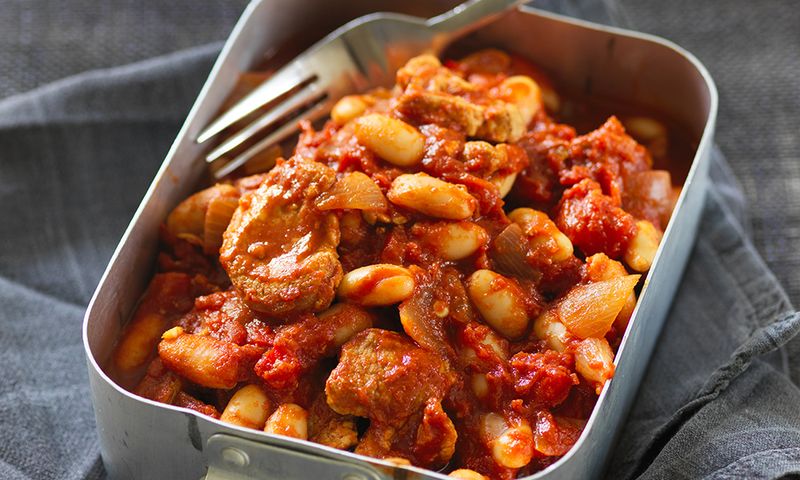
Beans and salt pork were synonymous with cowboy cuisine. This simple yet filling meal was high in protein and could be preserved for long journeys. Cowboys loved its robustness; it was both fuel and comfort. Picture the scene: a group of weary cowboys, boots kicked off, savoring each bite around a flickering campfire. This meal’s history is tied to seafaring and military rations, where preservation was key. For cowboys, it symbolized resilience and resourcefulness on the dusty trail, a warm embrace on a cold night.
Trail Coffee
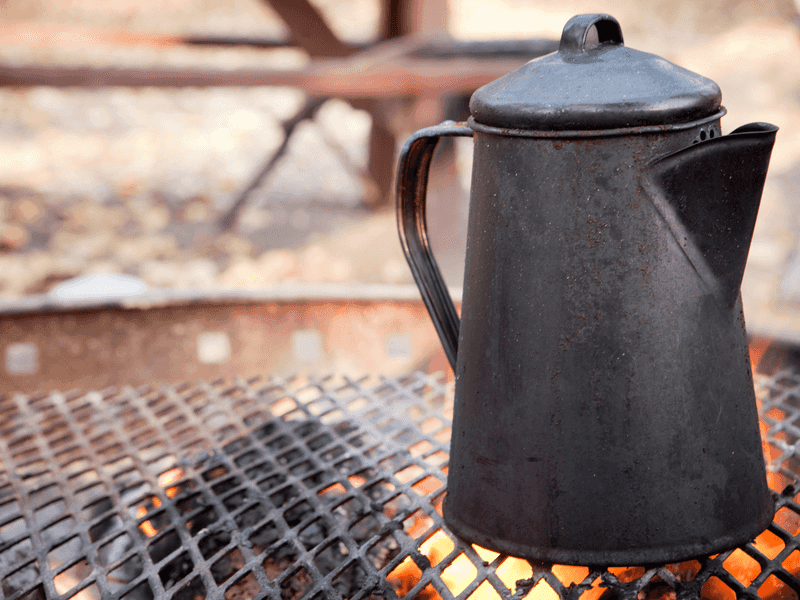
For cowboys, trail coffee was more than a drink; it was a ritual. Brewed from coarse grounds in a pot over the campfire, it was both bitter and invigorating. As dawn broke, cowboys gathered around for their morning jolt, sharing stories and plans for the day. The air was filled with the rich aroma of fresh coffee, a lifeline on the trail. Did you know? Coffee was often sweetened with molasses when sugar was scarce. This tradition highlighted the cowboy’s adaptability and camaraderie, making mornings memorable.
Johnny Cakes

Johnny cakes, a type of cornmeal flatbread, were a versatile cowboy staple. These cakes were quick to make and could be enjoyed at any meal. Cooked on an iron skillet, they were best served hot and crispy. The origins of Johnny cakes trace back to Native American cuisine, but they became a cowboy favorite due to their simplicity. Imagine a trail cook expertly flipping them over the fire, ensuring a perfect golden-brown crust. This dish was more than sustenance; it was a link to the land and its history.
Jerky
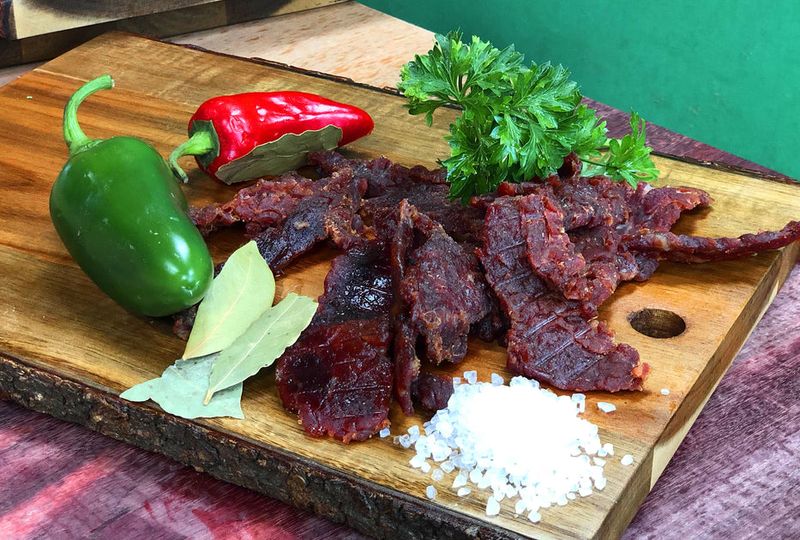
Jerky was the ultimate trail snack. Packed with protein and easy to carry, it was essential for long rides. Cowboys often prepared it by drying strips of beef in the sun, seasoned with salt and spices. This preservation method was borrowed from indigenous peoples. Envision a cowboy reaching into his saddlebag for a piece of jerky, the perfect on-the-go meal. Its chewy texture and savory flavor were a reminder of home, providing energy and comfort. Jerky’s practicality and taste made it an enduring symbol of the Wild West.
Dutch Oven Peach Cobbler
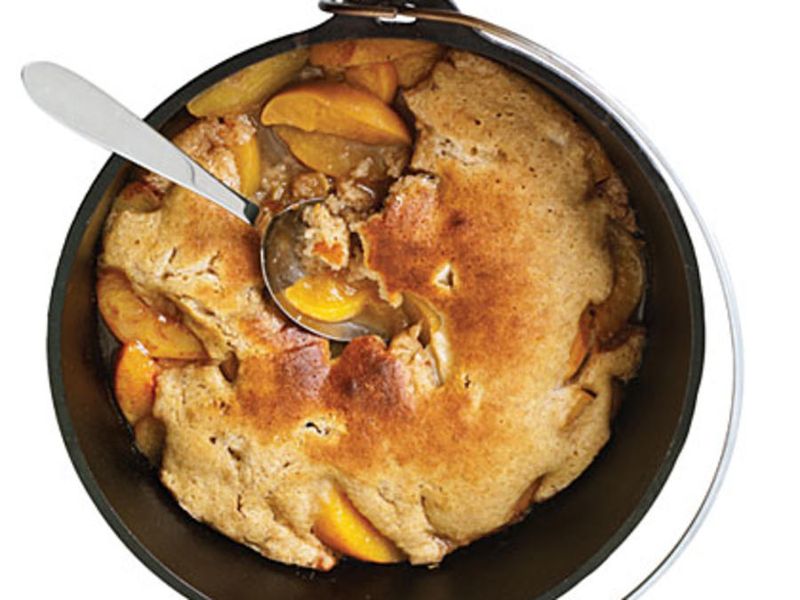
Dutch oven peach cobbler was a rare treat on the trail, bringing a taste of home to the wilderness. Made with canned peaches and biscuit dough, it baked slowly over coals, filling the air with a sweet aroma. Picture a group of cowboys eagerly awaiting the moment when the lid was lifted, revealing golden crust and bubbling fruit. This dish was a celebration, reserved for special occasions or successful cattle drives. Its simplicity and sweetness offered a comforting escape, a cherished memory in the wild terrain.
Corn Dodgers
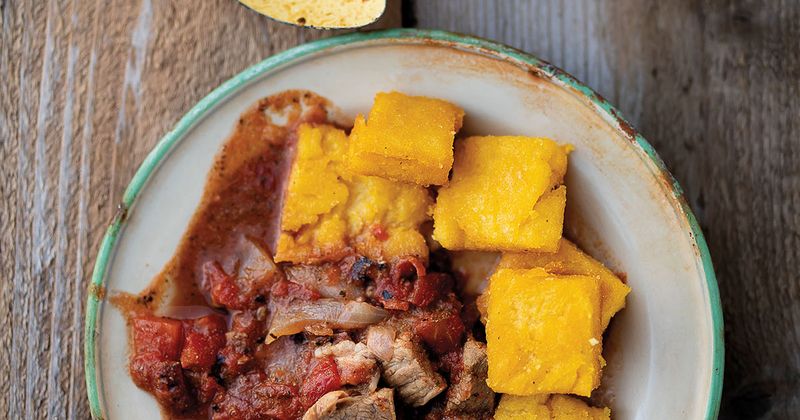
Corn dodgers were the Wild West’s answer to corn muffins. These dense, fried cakes were a cowboy favorite for breakfast or a side dish. Made from cornmeal and water, they were cooked until crispy, offering a satisfying crunch. Imagine a cowboy enjoying this humble dish, drizzling syrup for an extra touch of sweetness. Corn dodgers were a testament to the creativity of trail cooks, turning simple ingredients into beloved treats. Their origin lies in Southern cooking, showcasing the cultural blend that defined cowboy cuisine.
Pemmican
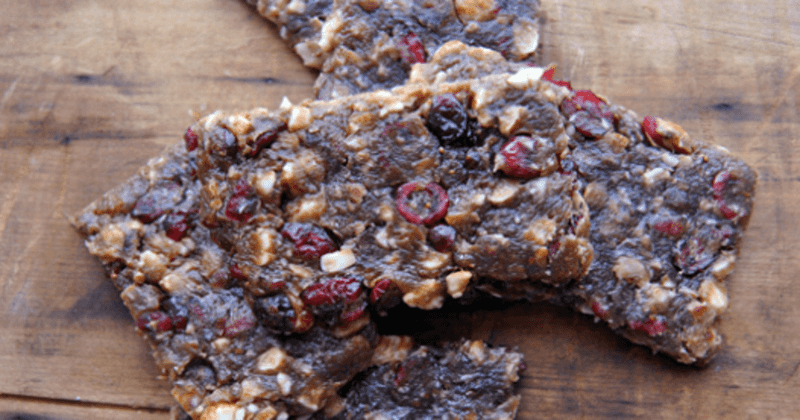
Pemmican was a high-energy food, perfect for the demanding life of a cowboy. Made from dried meat, fat, and berries, it was nutrient-rich and long-lasting. This Native American recipe was adopted by cowboys for its practicality. Picture a cowboy packing pemmican for a long journey, its compact form providing essential energy. The mix of sweet berries and savory meat created a unique flavor, offering both sustenance and taste. Pemmican was more than food; it was a lifeline, a blend of cultures sustaining the Wild West.
Flapjacks
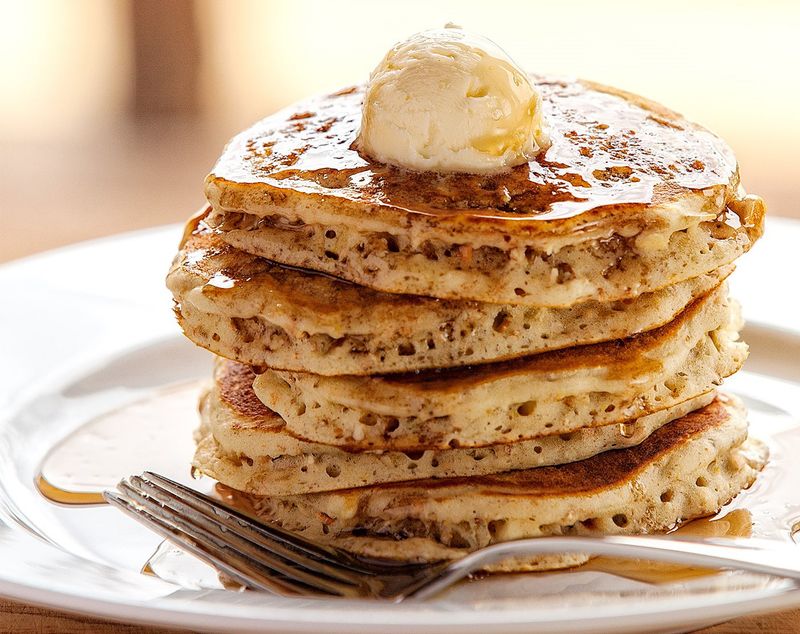
Flapjacks provided a hearty start to a cowboy’s day. These thick pancakes were made from flour, baking powder, and milk, cooked to perfection over an open flame. The trail cook would serve them hot, often with a generous pour of syrup or honey. Flapjacks were more than a meal; they were a morning ritual, a moment of comfort before the day’s hard work. This breakfast staple was beloved for its simplicity and satisfying nature, a versatile dish that adapted to the cowboy’s rugged lifestyle.
Prairie Chicken
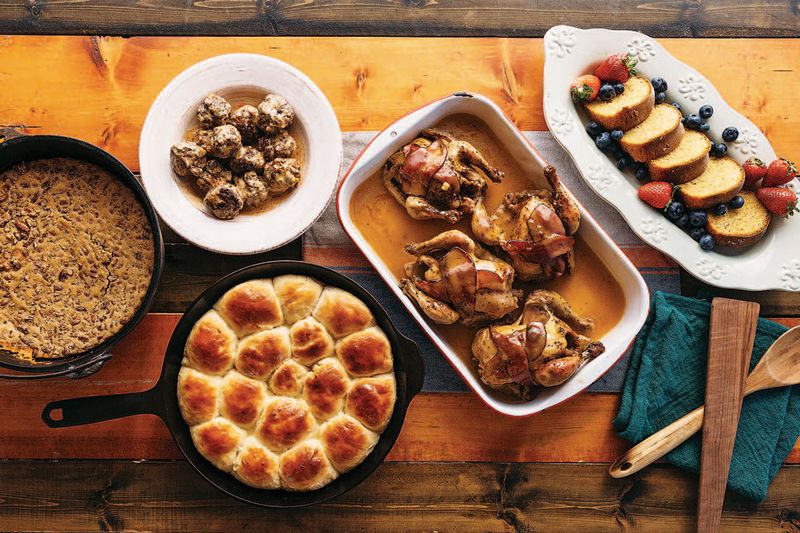
Despite its name, prairie chicken often referred to rabbit on the trail. This clever naming highlighted cowboy humor. Trail cooks roasted it over a spit, infusing the meat with smoky flavor. Imagine a cowboy eagerly turning the spit, savoring the aroma as it cooked. The dish was a highlight of trail cuisine, offering a taste of wild game. Prairie chicken embodied the adventurous spirit of cowboys, turning the hunt into a communal feast. Its preparation and enjoyment were a celebration of life on the open range.
Hardtack
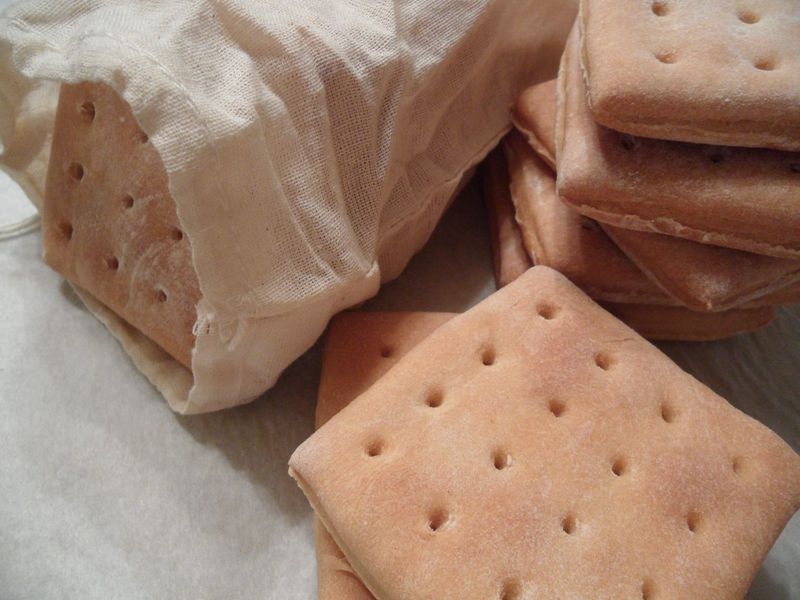
Hardtack was a survival staple, known for its durability and long shelf life. These simple, hard biscuits were often soaked in coffee or broth to soften them. Imagine a cowboy, weary from the trail, dipping hardtack into steaming coffee, transforming it into something edible. The dish’s origin lies in military rations, making it a practical choice for cowboys. Though not a gourmet meal, hardtack symbolized endurance and resourcefulness, a reminder of the harsh realities of the Wild West.
Chili Con Carne
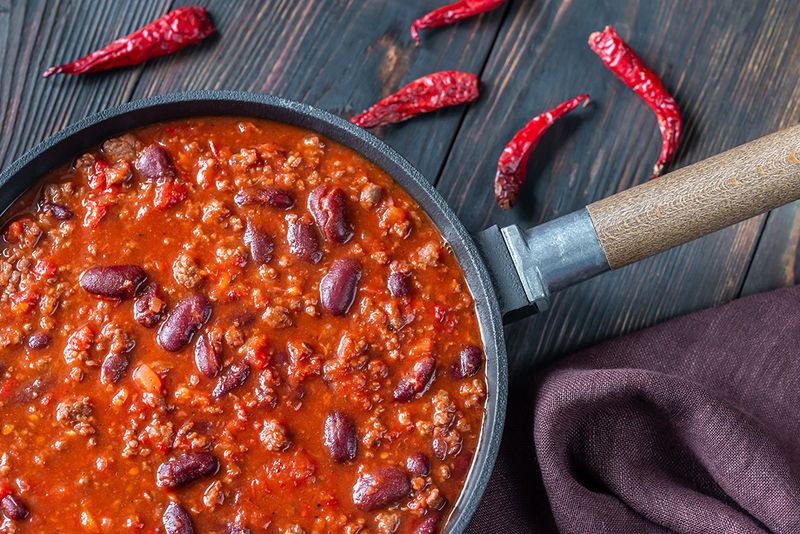
Chili con carne was a beloved one-pot wonder on the trail. This spicy, flavorful stew combined meat, chili peppers, and beans, offering warmth and nourishment. Envision a cowboy huddled by the fire on a chilly evening, savoring each spicy spoonful. The dish’s origins can be traced to Mexican cuisine, reflecting the cultural exchange of the region. Chili con carne was more than a meal; it was a celebration of flavors and camaraderie, a dish that brought cowboys together under the starlit sky.
Bacon
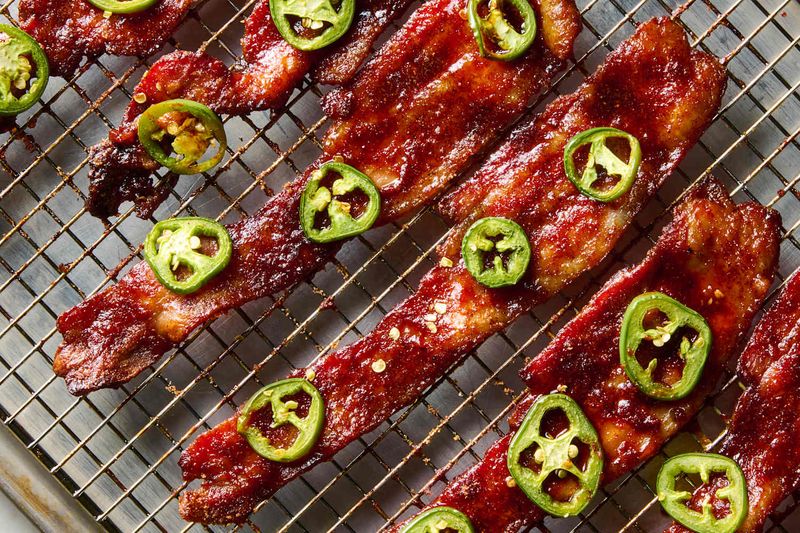
Bacon, crispy and flavorful, was a cowboy’s morning indulgence. Cooked over an open flame, it filled the air with an irresistible aroma. Picture a cowboy savoring the sizzle and smell, a moment of delight amidst the rugged routine. Bacon was more than just food; it was a morale booster, a taste of luxury in a modest life. Its preservation through curing made it a practical choice, but it was the flavor that made it unforgettable. Bacon epitomized the simple joys of cowboy life on the trail.
Campfire Baked Beans

Campfire baked beans were a cowboy favorite, a dish that simmered slowly over the fire, allowing flavors to meld. Made with beans, molasses, and bacon, it was a hearty side that complemented many meals. Picture a cowboy patiently stirring the pot, anticipating the rich taste. This dish’s sweetness and smokiness were a perfect match for the trail’s demands. It was a communal meal, shared among friends, embodying the camaraderie of cowboy life. Baked beans were more than sustenance; they were a culinary tradition, warming both body and spirit.
Canned Peaches
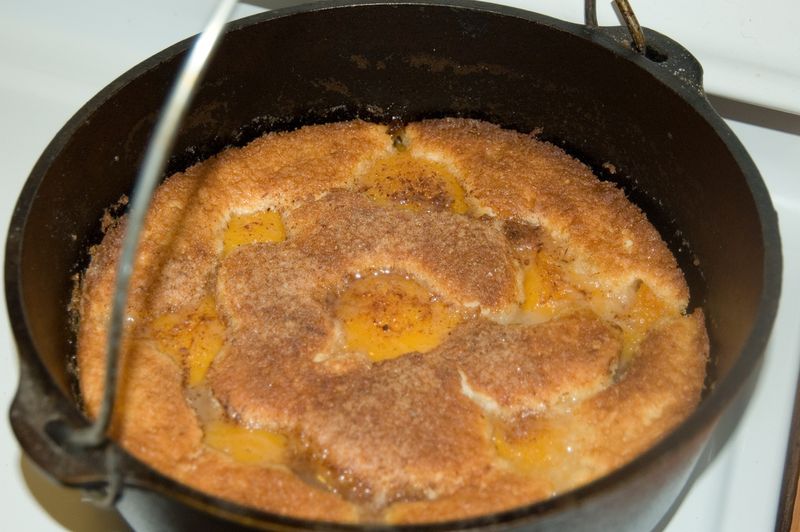
Canned peaches were a delightful surprise on the trail, offering a burst of sweetness amidst the savory staples. Cowboys cherished this treat, often saving it for special occasions. Imagine a cowboy carefully opening the can, savoring each juicy bite as a reminder of home. This preserved fruit was a symbol of adaptability, turning basic provisions into moments of joy. Canned peaches provided a sweet contrast to the salty and savory, a simple yet cherished luxury that brightened the harsh reality of life on the trail.
Rabbit Stew
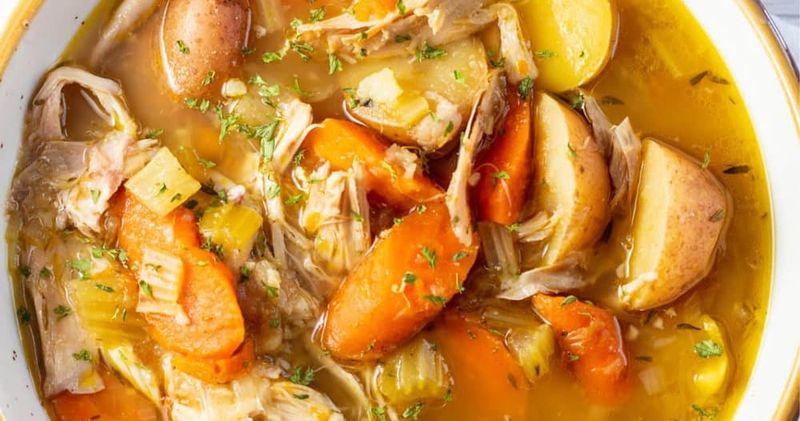
Rabbit stew was a trail delicacy, combining tender meat with hearty vegetables. Prepared over a campfire, it was both nourishing and flavorful. Picture a cowboy stirring the pot, the aroma mingling with the fresh air. The stew was a testament to the trail cook’s ability to create comfort from the land’s offerings. This dish symbolized the cowboy’s connection to nature, turning the hunt into nourishment. Rabbit stew was more than just a meal; it was a reflection of the Wild West’s resourceful spirit.
Potato Hash
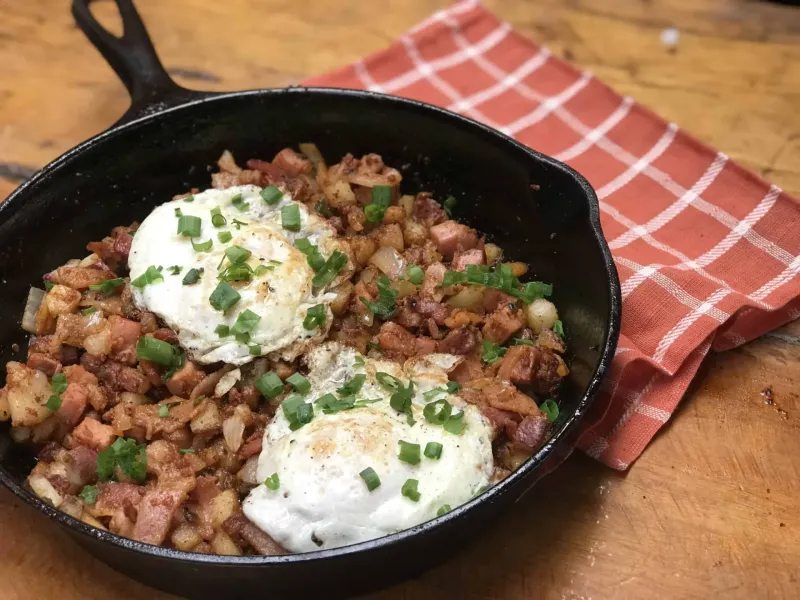
Potato hash was a versatile and filling dish, favored for its simplicity and taste. Made with diced potatoes, onions, and spices, it was cooked to a golden crisp over the fire. Imagine a cowboy savoring the savory aroma, a breakfast that promised energy for the day ahead. This dish exemplified trail ingenuity, turning humble ingredients into satisfying fare. Potato hash’s adaptability made it a breakfast staple, a dish that could easily be varied with the ingredients at hand. It was a comforting start to any cowboy’s day.
Leave a comment